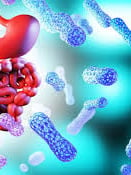Gut Health & Supplements


"Gut health supplements, such as probiotics, prebiotics, synbiotics, digestive enzymes, and fiber supplements, play a crucial role in maintaining a balanced gut microbiome, aiding digestion, and supporting overall well-being. Incorporating these supplements into your daily routine can help improve digestion, boost immunity, and enhance nutrient absorption. However, it's essential to consult with a healthcare professional before starting any new supplement regimen to ensure it's appropriate for your individual health needs."
Exploring Gut Health Supplements: A Friendly Guide
Hey there! Let's chat about something that's been getting a lot of attention lately—gut health supplements. Think of your gut as a bustling city, and these supplements are the friendly helpers keeping everything running smoothly. Ready to meet them? Let's dive in!
Probiotics: The Good Guys
Probiotics are live microorganisms that, when consumed in adequate amounts, provide health benefits to the host. They help balance your gut microbiome, aiding digestion and supporting your immune system. You can find them in fermented foods like yogurt, sauerkraut, and kimchi, or in supplement form. Popular strains include Lactobacillus and Bifidobacterium.
Prebiotics: The Gut Gardeners
Prebiotics are non-digestible fibers that act as food for probiotics, promoting the growth of beneficial bacteria in your gut. They're found in foods like garlic, onions, bananas, and whole grains. By nourishing your good gut bacteria, prebiotics help maintain a healthy digestive system.
Synbiotics: The Dynamic Duo
Synbiotics combine probiotics and prebiotics, working together to enhance the survival and implantation of live beneficial microbes in your gut. This synergy can improve gut health more effectively than either alone. You can find synbiotic supplements that pair specific strains of probiotics with complementary prebiotics.
Digestive Enzymes: The Food Breakers
Digestive enzymes are proteins that help break down food into nutrients your body can absorb. While your body produces these enzymes naturally, some people may benefit from supplements, especially if they experience issues like bloating or indigestion. Common enzymes include amylase (breaks down carbohydrates), protease (proteins), and lipase (fats).
Fiber Supplements: The Gut Movers
Dietary fiber adds bulk to your stool and helps keep things moving smoothly through your digestive tract. If you're not getting enough fiber from your diet, supplements like psyllium husk or methylcellulose can help. Just remember to drink plenty of water to avoid any... ahem... traffic jams.
Current Trends and Examples
Recently, there's been buzz about using magnesium oil applied to areas like the belly button and armpits for stress relief and better sleep. Some users claim it also benefits gut health, though experts advise caution due to limited research on transdermal magnesium absorption.
Another trending supplement is sea moss, also known as Irish moss. It's packed with minerals and vitamins and is believed to support gut health, among other benefits. However, dietitians advise caution due to its high iodine content and potential for heavy metal contamination.
Choosing the Right Supplement for You
Before adding any supplement to your routine, it's a good idea to chat with a healthcare professional. They can help you figure out what's best for your unique needs. Remember, while supplements can support gut health, they're most effective when combined with a balanced diet rich in whole foods.
Wrapping Up
So, there you have it—a friendly tour of gut health supplements. Whether you're considering probiotics, prebiotics, or other options, understanding how they work can help you make informed choices. Here's to a happy, healthy gut!
